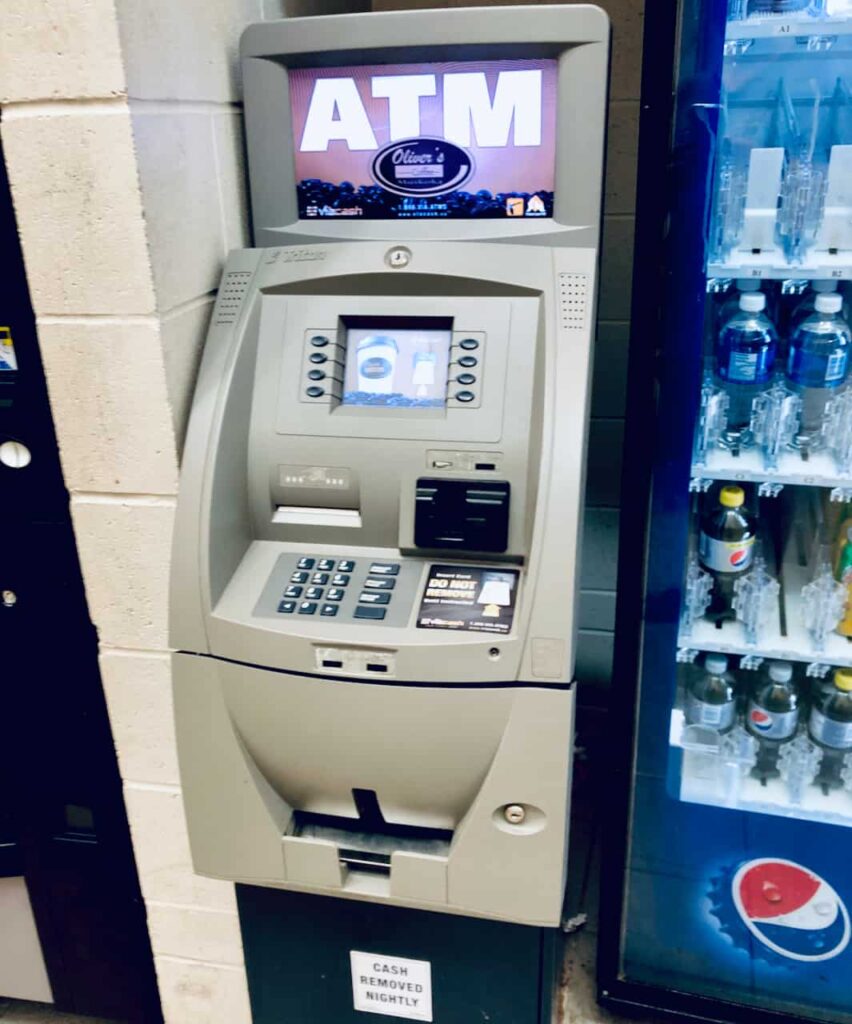[ad_1]
If you’ve never opened a business bank account before it can be a confusing — and even intimidating — process. But it’s really just a matter of knowing how to open an account that suits your needs.
In this guide, you find all the information you’ll need to make that happen. We’ll even suggest some banks to look into to help you find the right account for you and your business.
Understand Which Type of Business Bank Account You Need
Business bank account options have expanded in recent years, particularly with the advent of online banking. You can get a business bank account that is nearly a custom fit for your particular business.
There are several options:
Traditional Business Bank Accounts
These accounts are available from commercial banks, both large and small. They tend to work best for businesses that are established and have a predictable cash flow.
Smaller, local banks are usually more accommodating of new and small businesses. You’ll be able to get one-on-one attention, as well as access to a physical bank branch. However, local banks tend to be more limited if you transact business nationally, and especially internationally.
Large commercial banks can provide more services, particularly if much of your revenue is derived from overseas. These banks also tend to have more options related to the processing of credit and debit card transactions. However, they often favor larger and more established clients.
Whether you work with a small local commercial bank or a large national bank, traditional banks tend to have more fees than other types of business bank accounts.
Free Business Bank Accounts
Very few business bank accounts are truly free. Most are, at best, generally free in that they have no monthly service fee. These accounts often have other fees, especially for special services.
The closest thing to a truly free business bank account is BlueVine. The only fee on this account is a $15 charge for outgoing wire transfers. Apart from that, there are no monthly service fees and fees for incoming wires, non-sufficient funds (NSFs), or overdrafts. There are also no fees imposed if you exceed a certain number of transactions — a common issue with many traditional bank accounts.
You can open a BlueVine account with no initial deposit or minimum balance requirement. You can also earn interest on all balances up to $100,000. The account comes with a business debit card that can be used at tens of thousands of in-network ATMs. And if that’s not enough, you’ll also have paper checks with your account. That’s becoming increasingly rare, even among business bank accounts.
BlueVine offers other business services, including invoice factoring and a business line of credit.
Online Business Bank Accounts
These days, most business is conducted online. That opens the door wide for online business bank accounts. They work especially well for Internet entrepreneurs, freelancers, and those working in the gig economy who typically don’t need physical bank branches.
Though most banks offer online banking, there are dedicated business bank accounts that operate exclusively online. Since you can now do just about anything online that can be done in a bank branch, there’s no disadvantage to online-only banking. The absence of branch networks, and the many employees needed to staff them, means that online banks can charge lower fees than traditional banks.
Business Savings Accounts
Though savings accounts are more commonly associated with personal bank accounts, they may be necessary or desirable for businesses as well. Savings accounts give a business an opportunity to accumulate funds to pay for major expenses, finance future expansion or provide a cushion to weather downturns.
Many business bank accounts offer savings accounts with checking. You benefit from a higher rate of interest when working with an online business bank account than a traditional bank. Once again, the lack of a branch network and a large number of employees means an online bank is in a position to pay higher interest due to lower operating overhead.
What Do You Need to Open a Business Bank Account?
Much of the documentation required to open a business bank account is similar to what’s required for personal accounts. That will include:
- Your Social Security number
- A government-issued photo ID
- General information such as your full legal name, your home address, email address, and phone number.
Additional documentation will be required for a business bank account, though that may vary based on the type of business entity you operate as. For example:
- A sole proprietorship: the documentation requirements will be similar to those for a personal bank account. But if you’re required to pay sales tax or you have employees requiring withholding taxes, you’ll also need an employer ID number (EIN) which you can obtain from the IRS. If your business operates under a different name, you may need a fictitious business name certificate or DBA (doing business as) issued by your state or county of residence.
- If your business operates as a partnership, you’ll need to provide a copy of your partnership agreement, as well as a valid business license issued by your state or county of residence. You’ll be required to provide an employer identification number since the business will operate as a standalone entity.
- Corporations, S-corporations, and LLCs must also provide an IRS-issued EIN number, as well as any documents relating to your organization. For example, a corporation or S-corporation requires articles of incorporation, a corporate resolution, and evidence your company has been registered with your state’s Secretary of State.
With any business type, you may be required to provide a business license indicating you’re legally allowed to operate your business in your jurisdiction.
How to Deposit Funds into a Business Bank Account
When you first open a business bank account, you may need to fund the account with a check, a wire transfer, or by connecting the business account to a personal account for a direct transfer.
Once your account is up and running, you should be able to accept customer and client payments by check, ACH, wire transfers or through a third-party service like PayPal.
If your business accepts paper checks, you should be able to deposit those checks through online or mobile banking. With online banking, deposits are usually accomplished by scanning both sides of the check. Mobile banking enables you to accept deposits by taking a photo of both sides of the check from your smartphone.
Take these Common Business Bank Account Fees Under Consideration
Exactly what fees will be charged with a business bank account will depend on the bank and the checking account product they offer.
Typical fees charged on business bank accounts include:
- A monthly service fee: This can range from $5 to $50 or more, but you’ll naturally want to favor a bank account that either doesn’t charge a monthly fee or has a way for it to be waived.
- ATM fees: Some banks charge a fee each time you access an ATM. This charge is typically for the use of your debit card at out-of-network ATMs.
- Transaction fees: Traditional banks typically allow a certain number of free transactions, after which you’ll be charged a fee of anywhere from $0.30 to $1 per transaction.
- Cash deposit fees: Once again, this is more typical of traditional banks. They may charge you a fee of 2% or 3% of each deposit beyond a specific limit. That limit may be $5,000 or $10,000 per month.
- Wire transfer fees: Wire transfers are common in certain businesses, and the fees can add up. Banks often charge fees based on incoming or outgoing wires, as well as domestic and international transactions. These fees can range from a low of $15 to as much as $50 per wire.
- Penalty fees: These are fees that can vary between $5 and $35 per item for nonsufficient funds, returned deposited items, or overdraft charges.
The above are the basic fees you should expect to see in a business bank account. But each bank may have a slightly different format, charging for some activities but not for others. Before you sign up, look at the bank’s most recent fee disclosure to learn exactly what you’ll be paying.
Learn the Benefits of Opening Business Accounts
Unless you’re running a hobby business, you should have a dedicated business bank account. There are many benefits of having a business account, including:
1. Separation of Business and Personal Financial Activity
It’s much easier to keep track of your business-related income and expenses in a dedicated account. When you separate business and personal expenses in dedicated accounts, year-end income tax preparation is much easier.
Having a bank account where only business transactions happen makes tracking your profit and losses easier. It allows you to see problems quicker and helps you make profit adjustments earlier rather than later. Novo Bank is one bank that focuses on business banking, and you might find its checking account helpful for organizing your transactions.
If you were using one account with both personal and business expenses in it, imagine the headache of trying to sift through weeks’ or months’ worth of purchases to find out whether or not you made a profit last quarter.
Consider this: Keeping all your business transactions separate from your purchases makes weekly and monthly reconciliation easier. And this creates fewer headaches during quarterly and yearly tax preparation.
You’ll also be able to see all business-related fees, memberships, and subscriptions in one place. Not so simple if you have personal expenses, club memberships, and magazine subscriptions altogether.
Remember, business fees and memberships/subscriptions qualify as tax-deductible business expenses. But of course, you’ll have to be able to prove it through proper and organized record keeping.
2. When You Need Flexibility
Having a business bank account allows you to accept more types of payments from clients. Especially if you do business online and/or have international clients.
Accept credit cards and payments via PayPal, Stripe, and TransferWise. You can also sign up for merchant account ACH bank-to-bank transfers. This is something you can’t do with a personal checking or savings account.
Something to note: Apps like FreshBooks and 17Hats won’t allow you to accept payments from these third-party payment processors unless you link a bank account to your FreshBooks or 17Hats account.
A business account allows for future business structure expansion. You may decide to grow your business and add a partner. Or you may take on employees. Or move from a sole proprietorship to a different structure. If so, you’ll need to have a business bank account.
A business account lets you give other people access to the account—for example, a partner, an accountant or bookkeeper, or an employee.
3. Unique Business Banking Services
Business bank accounts offer certain business-related services that are not available with personal accounts. Examples include the ability to integrate the account with third-party service providers and processing large numbers of transactions.
Also, having a separate business bank account allows you to stay accountable to other aspects of your business. For instance:
- Give an accountant or bookkeeper access to help you manage and double-check your business finances. (This means you don’t have to give them access to your personal transactions.)
- Know what’s going on with your business financials each quarter. See how the business is doing overall, so you can adjust for future growth.
- Manage your business budget each month.
- Know what’s going on with your business, where the money is coming from, and where it is going.
- Keep track of all sources of income, expenses, merchants, and clients. This makes tax time more manageable for you and your accountant.
4. A Dedicated Business Bank Account Looks More Professional
When a client, customer or vendor sees transactions from a business account, your business will seem more legitimate than if you transact business through your personal account.
A business bank account will give you the professional credibility that a personal bank account can’t. It doesn’t matter what type of business you run, whether it’s an LLC (limited liability company), incorporated company, sole proprietorship, or a side hustle.
As a business owner, you’ll not only be taking payments; you’ll be making payments as well. Create an account with your professional business name. Any checks you write will have your business name on it. Your personal account allows only your name on checks.
What looks better on a check or invoice to a client or merchant? Your name or your legal business name?
A business account legitimizes your company and gives you professional credibility when it comes to writing checks, accepting payments, and sending invoices because the account is in your legal business name.
5. Legal Separation Between You and Your Business
Certain business formations such as corporations, S-corporations, and limited liability companies (LLCs) are established to limit your personal liability in business affairs. A dedicated business bank account will further strengthen that distinction.
The IRS guidelines for small businesses state that owners may keep any records necessary that best suit their business. They need to show any income and expenses clearly. The best way to do that is to make sure your personal transactions are kept as far away from your business transactions as possible. You’ll thank yourself if there’s ever an audit.
For some small businesses just starting out (and for some side-hustle businesses), there is the question of whether it’s considered a hobby or business. According to the IRS publication, if you are keeping things organized with a business account and can prove you are making a profit, you shouldn’t have a problem.
Bottom Line: Open a Business Banking Account Today
If your business has moved beyond the casual or hobby stage, it’s time to get a business bank account. Not only will it make your business look more professional, but it will also be easier to keep track of your business income and expenses. You can also take advantage of the myriad services only available through a dedicated business bank account.
View the original article at here.
Investor Junkie
investorjunkie.com



